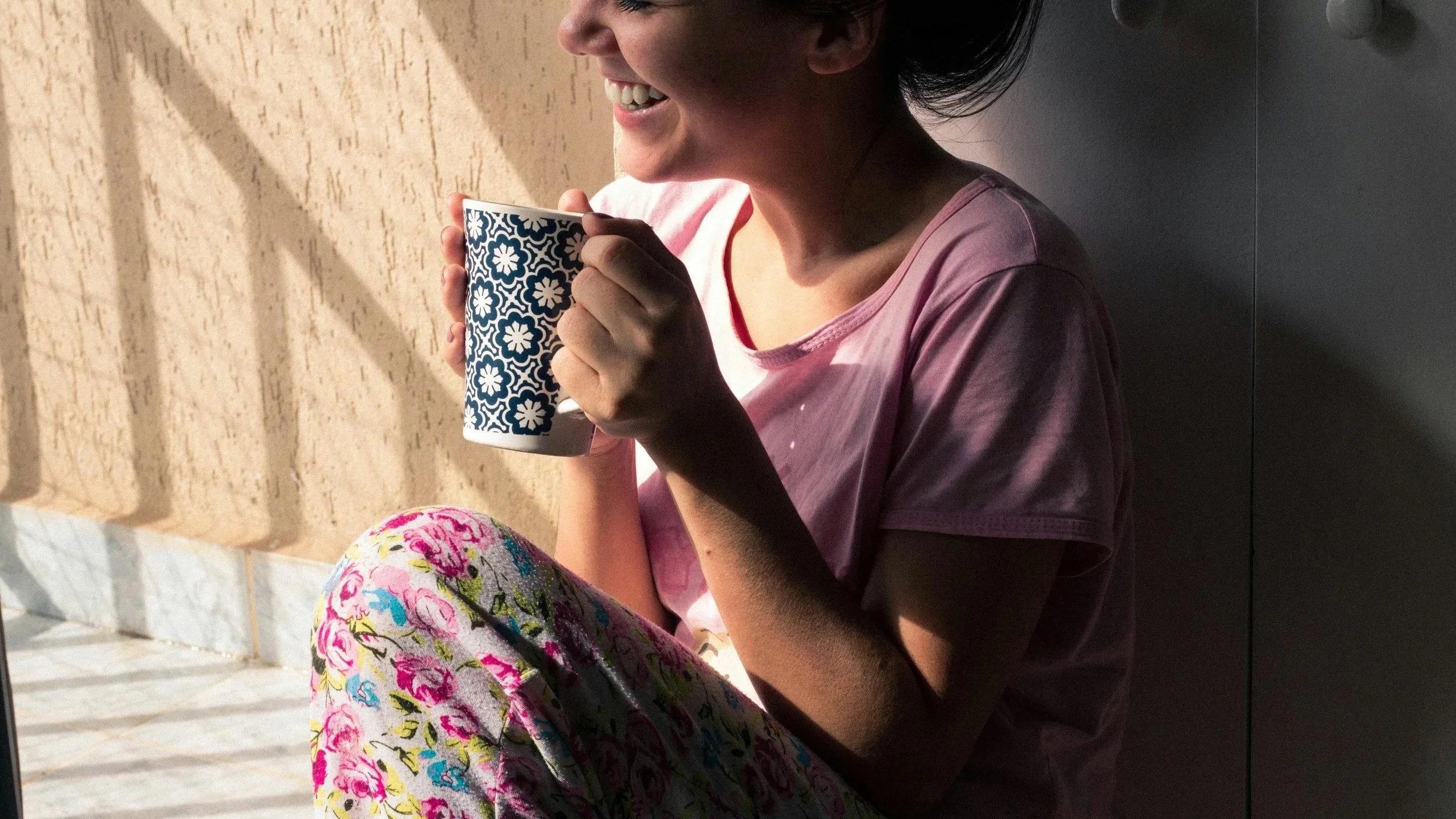App Translates into Sign Language, Cancer Blood Test Shows Promise, and Standard Time Is Healthier
Elly Savatia developed the App Terp 360. Photo: Royal Academy of Engineering
Every week brings uplifting news that often gets lost in the noise of headlines. Happy Spot has selected five inspiring stories from other outlets that offer a dose of optimism and could just as well have come from us.
App Translates Directly into 3D Sign Language
“It’s like Google Translate for sign language,” says Elly Savatia, describing his app Terp 360. “It converts speech and text into 3D avatars that translate in real time into sign language.” The Kenyan developer has just won an innovation award from the UK’s Royal Academy of Engineering, which comes with a £50,000 prize.
Savatia explains that deaf people in Africa are often excluded due to a lack of sign language interpreters. His app aims to make communication easier. Terp 360 currently translates English and Swahili into Kenyan Sign Language, with plans to add more languages. Africa alone is home to around 30 different sign languages, and globally there are about 300. The cultural differences between them are significant, Savatia notes.
Source: CNN
Promising Results from Blood Test for 50 Types of Cancer
A new blood test has delivered striking results in a recent trial, raising hopes that it could lead to earlier cancer detection, and potentially better outcomes. According to the test’s developer, Grail, most cancer deaths occur because the disease is diagnosed too late. Independent experts caution, however, that the test could also lead to overdiagnosis. More studies are needed to determine whether earlier detection will actually reduce mortality.
A three-year study involving 140,000 participants is currently underway in the UK, with results expected next year. The North American trial tested 25,000 people. The blood test flagged about 1% of participants, and in 62% of those cases, cancer was later confirmed. And it were mostly types for which no routine screening exists.
The test detects tiny fragments of cancer DNA shed by tumors into the bloodstream. In nine out of ten confirmed cases, it correctly identified the cancer’s origin. It also accurately ruled out cancer in more than 99% of participants who were not diagnosed during the study.
Source: BBC
Standard Time May Be Better for Your Health
Many people would like to do away with the biannual clock change. The EU has been debating it for years but can’t agree on whether to keep daylight saving time or standard time. A new study published in the Proceedings of the National Academy of Sciences takes a closer look and finds that permanent standard time offers clear health benefits.
Ideally, that would mean sticking with standard time. A team led by Lara Weed at Stanford Medicine calculated that permanent standard time in the U.S. could prevent 300,000 strokes annually. It could also reduce obesity rates by up to 2.6 million cases. With daylight saving time, the numbers are slightly lower. Still, 220,000 strokes could be avoided.
The reason lies in our body’s natural rhythm. A typical circadian cycle runs slightly longer than 24 hours, so we need external cues to stay in sync, explains study author Jamie Zeitzer. Morning light is especially important. “In general, you need more morning light and less evening light to stay properly aligned with a 24-hour day,” he says. That gives the edge to permanent standard time. Zeitzer adds that economic and social studies should follow to assess the broader implications.
Source: Scientific American
Bamboo-Based Plastic Gains Ground
Researchers at a university in China have developed a new bamboo-based plastic that is strong, heat-resistant, and recyclable. It’s made from bamboo fibers and polylactic acid (PLA), a biopolymer derived from corn starch. Both are renewable resources, with fast-growing bamboo offering particular promise for bioplastics.
The material’s strength is comparable to conventional plastics used in automotive and household applications, according to an expert not involved in the study. However, it may not be suitable for packaging or plastic bags. In the field of technical plastics, though, bamboo could become a viable alternative. While it’s currently more expensive than traditional plastic, the Chinese team points out that its recyclability could make it more economically attractive in the long run.
Source: New Scientist
Power Women at 80
Betty Kellenberger, 80, is now the oldest woman to have hiked the entire 2,200-mile Appalachian Trail in the U.S. She began her journey in 2024, facing dehydration, a concussion from a fall, and Lyme disease from a tick bite. A hurricane forced her to pause the trek, but she resumed in 2025 and reached the finish line in Maine.
Reflecting on her journey, Kellenberger said, “You see incredible parts of the country, things you’d never see otherwise. So much wildlife. It’s just beautiful.” What meant the most to her, though, were the people she met along the way. She’s proud to have completed the trail but admits she’ll miss the peace and serenity of hiking in nature. “This life is a journey. Maybe it’s a series of small journeys. And the greater your effort, the greater the reward,” she says.
“This life is a journey. Maybe it’s a series of small journeys. And the greater your effort, the greater the reward,” says Kellenberger. Photo: Betty Kellenberger
Equally impressive is Natalie Grabow, also 80, who became the oldest woman to complete the Ironman World Championship in Hawaii. She only learned to swim at age 59. Now, she’s conquered nearly four kilometers in the water, 180 kilometers on a bike, and finished with a full marathon. Sixty younger competitors dropped out this year, but Grabow crossed the finish line.
Source: Sunny Skyz & The Athletic
Get your weekly dose of good news every Wednesday morning. We'll send you all the new Happy Spot articles with quick summaries, along with the week's top headlines featuring good news worth reading.
TRENDING ARTICLES











